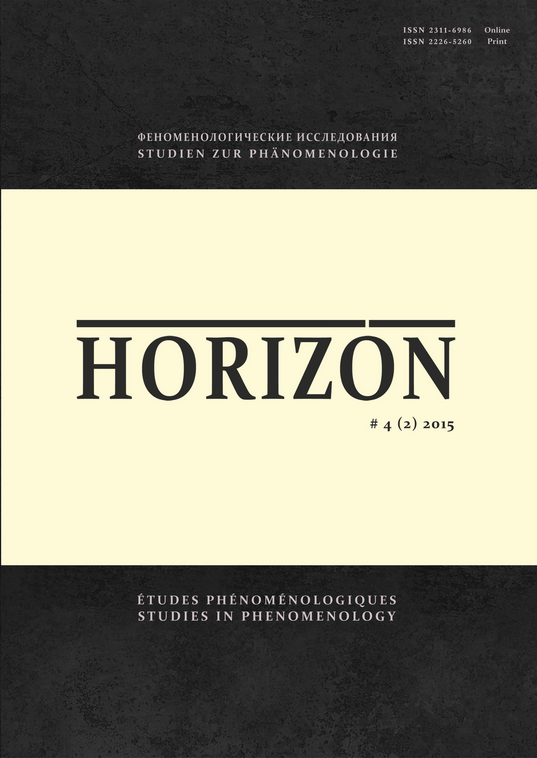ZUM BEGRIFF DER ENTFREMDUNG BEI HUSSERL UND HEGEL
TO THE CONCEPT OF «ALIENATION» IN HUSSERL AND HEGEL
Author(s): Mikhail BelousovSubject(s): Phenomenology
Published by: Издательство Санкт-Петербургского государственного университета
Keywords: Alienation; phenomenology; German Idealism; consciousness; difference; I; оther
Summary/Abstract: The article deals with alienation as a difference between subjectivity and itself. Based on the comparativeanalysis of the concept in Phenomenology of Spirit and The Crisis of European Sciencesthe study treats the difference as a presupposition underlying both phenomenology and GermanIdealism and reveals its heuristicity. The first section explicates the conceptual horizon of thealienation problem in Phenomenology of Spirit. It is the interpretation of Kantian concept of selfconsciousnessin German Idealism. The article analyzes two aspects of the concept motivatingthe interpretation: self-consciousness as a spontaneous act and both as the condition and result ofthe synthesis. The second section demonstrates the correlation between these aspects and two dimensionsof alienation in Phenomenology of Spirit: the self-assertion of the subject as object, i.e.as other for itself, and transition from the subject to a predicate, also treated as the self-assertionof the one (subject) as other (predicate). So the research shows that Hegel identifies actuality ofthe subject with becoming itself as becoming other for itself. In its completeness it appears to besuspended (not eliminated) alienation. The last section is devoted to alienation as the constitutionof another ego in Crisis and compares Husserlian and Hegelian understanding of the phenomenon.Unlike Hegel, Husserl discovers irreversibility of alienation, as the difference between egoand alter ego is not the one between ego and itself. Yet the concepts of the primal I (Ur-Ich) andtemporalization as the difference of the I from itself suggest that the difference between ego andalter ego is grounded in the one of the I from itself. The heuristicity of the grounding is the suspensionof the adequate evidence principle. The difference of ego from itself in intersubjective andtemporal experience as the fundamental difference is constituted insofar as immediate perceptionis slipping away.
Journal: Horizon. Феноменологические исследования
- Issue Year: 4/2015
- Issue No: 2
- Page Range: 99-120
- Page Count: 22
- Language: German

